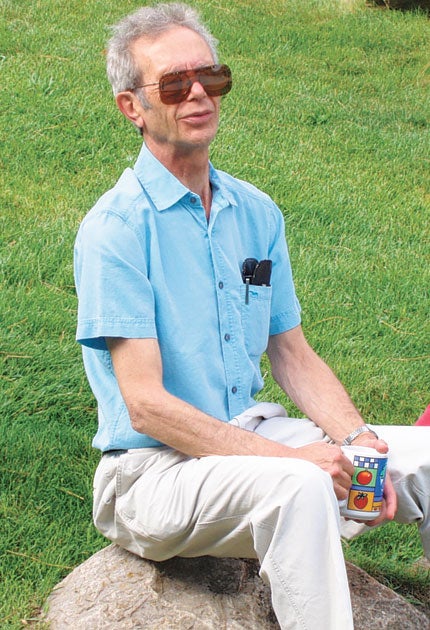Professor Phil Levy: Psychologist who aided the academic expansion of his discipline

Every profession needs a fixer, who generates and sees through new and effective policy ideas. Philip Levyperformed this function on behalf of academic psychology during theperiod when the discipline was expanding dramatically in universities and schools. He could do this because he was highly numerate and had a penchant for unpicking research designs and solving statistical problems from first principles.
Always a dapper Yorkshireman, Philip Levy, always known as Phil, attended Leeds Modern School, and read psychology at Leeds University, graduating in 1955. While there, he worked on the student newspaper, where he met Gill Harker, whom he married in 1958, just as he was about to graduate with a PhD in psychology and education from Birmingham University.
In his doctoral research Levybecame an expert in the science ofpsychological-test construction and analysis, and his PhD in this specialist area meant he was much in demand. Even during national service he was recruited by the air ministry toperform research into the psychological tests that the Royal Air Force had designed to select its pilots. After his service he was kept on as a civilianemployee for a year, and he won the Sword of Honour for his services. He went on working for the Air Force, but as an academic, first at Birmingham from 1962 and then as founding professor in psychology at Lancaster University from 1972. He was active in a wide range of government and other applied research projects.
Throughout the 1960s Levy worked closely with the National Children's Bureau providing statistical advice to Mia Kellmer Pringle, then its director. I joined the Bureau in 1972 and we both quickly realised that we shared similar views, not only about how to analyse and present data, but also about the theoretical underpinnings of educational research and psychometrics. As a young and inexperienced researcher, I benefited enormously from his patient and encouraging wisdom.
Because he had a deep understanding of the technicalities Phil never allowed himself to be caught making claims that went beyond the assumptions built into the statistical models people were using. As editor, for many years, of the British Journal of Mathematical and Statistical Psychology, he had a wide knowledge of what was being done and a fine nose for detecting both misunderstandings and the posturings sometimes adopted by those advancing a particular claim.
In 1984 he and I collaborated on Tests in Education, a set of critical reviews of psychological tests being used in the educational field. Phil was keen to contextualise the reviews within their likely educational settings and set out clear judgements about not only the traditional concerns of validity and reliability, but also how educationally relevant they were, how they were standardised and how open publishers were about their construction. Thanks to Phil's prestige, over 50 reviewers gave their services freely. The result was an informative and entertaining description of the good, the mediocre and the (large number of) really bad tests.
During this time I visited Phil and his family frequently at their house in a rural area near Lancaster. For most of the 1970s and early 1980s Phil was at the top of his profession, and had an international reputation. He also became a highly skilled policymaker within higher education. From 1979 to 1989 he was chair of three consecutive Social Science Research Council (today's Economic and Social Research Council) research committees.
His advice was sought in both academic and political circles and he often had the task of effecting policies that universities were reluctant to see the need for. In 1986 he co-chaired the psychology panel for the first Research Assessment Exercise and he foresaw the emergence of the "full economic costing" model some 20 years before universities adopted it.
In their retirement Phil and Gill moved to Winchester to be near their elder daughter, Lucy. After Gill's death in 2003, he and Lucy took Open University degrees in mathematics and statistics. He was a diligent but difficult pupil, asking at every opportunity what the underlying principles were to any proof that was introduced – most tutors responded "You don't need to know that", which made Phil even more eager for the answer. He also continued to play bridge and was known as "the machine" as he could work out with a high degree of accuracy what cards each hand contained. In his professional as well as personal dealings Phil was always courteous and cheerful, even though for 30 years his eyesight was failing and he was finding work difficult.
Philip Marcus Levy, psychologist: born Redcar, Teesside 4 February 1934; senior research fellow, lecturer, senior lecturer, Birmingham University 1962–72; professor of psychology, Lancaster University 1972–94, then Emeritus; married 1958 Gillian Harker (died 2003; two daughters); died Winchester 23 January 2011.
Join our commenting forum
Join thought-provoking conversations, follow other Independent readers and see their replies
Comments
Bookmark popover
Removed from bookmarks